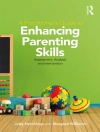Becoming Good Parents goes beyond a psychological understanding of parenting to include a deeper explication of the philosophical (moral) and existential (spiritual) dimensions of parenting. It counters the contemporary notion that parents can be satisfied with simply being ‘good enough’ in their parenting practices, which encourages a sense of complacency. Through everyday examples, illustrative use of Harper Lee’s moral novel To Kill a Mockingbird, and a reinterpretation of the theoretical viewpoints of psychologists Erik Erikson, Heinz Kohut, and Rollo May, along with philosophers Iris Murdoch and Michael Gelven, the author argues that the struggle toward perfection (goodness) is a natural human impulse. Parenting provides an optimal context for the practice of character refinement, which can potentially contribute to the psychological and spiritual growth of both parents and children. Ultimately, the book demonstrates that by becoming good parents, we become good persons.
Cuprins
Acknowledgments
Introduction
1. Growth in Parenting
2. Parenting as Care
3. The Moral Dimension of Parenting
4. Parenting as an Existential Life Project
5. Empowerment in Parenting
6. Parenting and the Life of the Spirit
Appendix
The Story of To Kill a Mockingbird Revisited
Notes
References
Name Index
Subject Index
Despre autor
Mufid James Hannush is Associate Professor of Psychology and Chairperson of the Social Sciences Division at Rosemont College.












